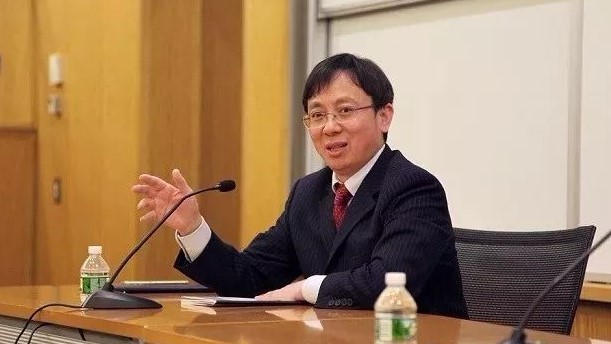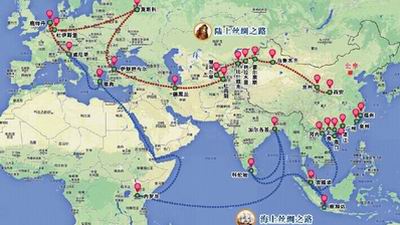编者按:
《纽约时报》11月24日刊登傅莹署名文章,文章谈了中美两个主要大国未来发展关系面临的问题和应对的思路,认为两国构建合作-竞争关系是可能的。
以下是傅莹文章的中文版,中英文版经作者授权《纽约时报》发布。
正所谓大国政治无边界。未来美国政策的方向成为许多中国人热议的话题。
毋庸讳言,过去四年中美关系受到严重损害,双方都表达了许多不满和关切。美国认定中国要争夺世界霸权,而中国人看到的是美国处处阻挡中国前进和人民追求美好生活的进程。
似乎双方都确认对方是错误的一方,一方提出的倡议总会被视为对己方利益的损害。例如,中国提出“一带一路”倡议作为全球公共产品,旨在促进更多的经济增长和更大的互联互通,而美方视之为一种谋求地缘政治主导力的战略。
随着两国关系近年变得更加紧张,华盛顿开始打压中国科技企业,给中国留学生制造麻烦。我遇到许多曾经在美国留学的中国青年企业家,在两国经历了多年富有成效的合作伙伴关系之后,他们现在被美国视为安全上的威胁,这使他们感到很困惑。将人文交流也都政治化的做法,令很多人担心曾经惠及双方的纽带还能否再现活力。
重新激活中美关系时,重要的是准确判断对方的意图。中国无意取代美国在世界上的主导地位,也无需担心美国改变中国的制度。
中美这样两个强大的国家若因误判而滑向冲突,那将是历史性悲剧,必然要损害两国的根本利益,让许多企业乃至普通民众付出代价。
中美两国政府各自都有重要的国内议程去关注,即便竞争不可避免,也需要合作管控好。两国是有可能通过解决彼此关切来发展某种“竞合”(合作与竞争)关系的。
在经济和技术领域,规则和法律须得到遵守。 北京重要的是倾听和解决在华美企提出的合理关切,比如更好地保护知识产权、网络安全和隐私。中国一直在这些领域做出努力,不断完善法律、从严执法。中国全国人大常委会刚刚通过了对著作权法的修改,其中就包括了加大对侵权行为的处罚力度等内容。而华盛顿则应该为在美经营的中国企业提供公平的环境。美方对华为公司在尖端领域拥有优势的恐惧,不应该以政府霸凌的方式表达,这样做不仅伤害到相关企业,也阻碍了人们从新技术进步中获益。美国政府应该做的是鼓励自己的企业与华为开展合作和竞争。
以国家安全为理由试图禁止颇受欢迎的社交平台TikTok的做法也是很不公正的,美方并没有能够公开证明其所谓违反安全的说法,而TikTok承诺了要遵守美国的所有法律和规则。
华盛顿以所谓国家安全为借口打压中国企业的论调在中国人看来都是很虚伪的。因为中国在过去40多年的改革开放中引进了各种西方技术,也欢迎美企进入中国。这并没有妨碍中国维护国家安全。所以,如果双方能够进行平等和坦诚的谈判,应能为长久互利交往奠定坚实基础。
在政治领域,美国早该放弃干涉他国内政的习惯了。多年来美国的全球干预行为屡屡碰壁,例如在阿富汗、伊拉克和利比亚,华盛顿应该从中吸取教训。美国担心外国干预自己的总统大选,那么是否也应能理解为何他国对美国的干预如此敏感。
美方指责中国制度或者针对中国的国内政策采取行动令中方反感。当然,中方也需要更加主动地向外部世界提供第一手信息,让外界更好地了解中方的立场和行为的缘由。
中美应当相互尊重、承认各自政治制度不同、各美其美,从而营造一种更加平和的气氛。
在安全领域,双方都有责任维护和保持亚太地区多年来所享有的和平、安宁局面。美方需要尊重中国人对国家统一的信念,不要在台湾等问题上挑战中方,或是介入南海领土争议。
毋庸置疑的是,中国海军的成长给美国在西太平洋地区带来压力——美国海军一贯自恃是该地区的主导力量,中国这个强大本土力量的出现令其感到不安。美军针对中国申明拥有主权的领土进行抵近活动遭到中国军队越来越强的反对。
美方漠然对待中国在台湾和南海领土争端问题上的关切,不能不让中方怀疑其动机何在:美国是否想帮助台湾实现独立,是否想在(南海)争议中选边站队帮助其他争议方,要像过去的帝国主义者那样欺侮中国?
为了避免误解和意想不到的冲突,两国军方可以在战略层面开展对话,以建立有效管理潜在危机的机制,找到和平共处的路径。
这并非不可能。上个世纪90年代末期中美就建立了海上安全磋商机制,后来还建立了处置海空意外相遇的规则和平息可能发生的危机的热线系统。近年两军建立了重大军事活动相互通报机制。
现在需要的是坦诚交谈以更好地了解彼此意图和培育信任。
最后是在全球层面,中美合作的空间和需求很大,最紧迫的是抗击新冠疫情的合作。
两国科学家以往在应对卫生危机上有着坚实的专业合作经历,应鼓励他们再度最大限度地发挥相互交流和联合研究的潜力。中国和美国在疫苗研发方面都有丰富的资源,如果两国能够携手提高全球疫苗的可获得性和可负担性,整个世界都会因此而获益。
气候变化是另外一个迫切需要关注的领域,世界期待中美发挥引领作用,两国有许多事情可以一起做。至于其他全球议题,诸如经济稳定、数字安全、人工智能治理等,也都需要团结协作来应对。
中美如能携手与其他国家同心协力应对这些挑战,多边主义将继续为人类进步带来希望。
Cooperative Competition Is Possible Between China and the U.S.
A former vice foreign minister of China proposes a way forward for the world’s two leading powers.
By Fu Ying
BEIJING — The domestic politics of major countries are never kept within their borders — and the future policy orientation of the United States has become a hot topic for many people in China.
There is no denying the fact that China-U.S. relations have suffered serious damage over the past four years. Each country has expressed much complaint and concern about the other.
The United States believes that China craves world hegemony. China sees the United States as trying to block China’s way forward and as hindering its people’s pursuit of a better life.
It seems that both sides are convinced it is always the other party that is in the wrong; any initiative one of them undertakes is invariably seen by the other as an attempt to undermine it.
For example, China has proposed the Belt and Road Initiative as a global public good to promote more growth and greater connectivity, but America interprets the project as a strategy for geopolitical dominance.
As relations grew more tense in recent years, Washington started bullying Chinese high-tech companies and making things difficult for Chinese students. I have met many young Chinese entrepreneurs who studied in America and who today are puzzled to be treated like a security threat to the United States, after many years of a productive partnership between our two countries. The politicization of even people-to-people exchanges has left many wondering if what had long been mutually beneficial ties can be reinvigorated.
To refresh the relationship, each side must accurately assess the other’s intentions. China does not want to replace U.S. dominance in the world. Nor does China need to worry about the United States changing China’s system.
And it would be a tragedy of history if two countries of such power moved toward confrontation based on misperceptions. That would only work against their own fundamental interests, and many businesses and people would pay the price.
Both governments have heavy domestic agendas to attend to, and so even if competition between China and the United States is unavoidable, it needs to be managed well, cooperatively. It is possible for the two countries to develop a relationship of “coopetition” (cooperation + competition) by addressing each other’s concerns.
In the fields of economics and technology, rules and laws must prevail. It is important that Beijing listen to and address the legitimate concerns of American companies in China, such as their calls for better intellectual property protection, cybersecurity and privacy. China is making strong efforts in all these areas by improving its laws and their enforcement. The Standing Committee of the National People’s Congress recently adopted amendments to China’s copyright law, raising the cost of violations, among other things.
Washington, for its part, should ensure a level playing field for Chinese enterprises to operate in the United States. America’s fear of Huawei’s cutting-edge advantages should not be expressed through government bullying: This not only hurts the company; it also limits many people’s access to technological progress. The U.S. government should instead be encouraging its companies to work and compete with Huawei.
Its attempt to block the popular social media platform TikTok on national security grounds also seems unfair since the United States has not publicly proved its allegations of security violations and the company has vowed to abide by all U.S. laws and regulations.
Washington’s so-called national security argument against Chinese companies seems hypocritical to the Chinese considering that China, over the course of four decades or more of reform and opening up, welcomed all kinds of Western technologies and American companies into China — all the while maintaining its own national security.
And yet if the two sides engage in equal and candid negotiations, they should be able to build a solid basis for long-term relations that are beneficial to both.
On the political front, it is high time that the United States drop its habit of interfering in other countries’ internal affairs. One hopes that Washington will learn from its unsuccessful interventions the world over, for example in Afghanistan, Iraq and Libya. America’s concerns that foreign forces might interfere with its presidential elections should serve as a good reminder of why other countries are so sensitive about U.S. intervention in their own domestic affairs.
China finds it offensive when the United States points a finger at the Chinese system or takes action against Beijing for its policies on domestic matters. But China also needs to be more proactive in providing the rest of the world firsthand information about what the country stands for and why it is doing what it is doing.
A calmer atmosphere can be cultivated when China and the United States respect each other and acknowledge that the other has a different political system that is working in its own way.
In the security field, both countries shoulder responsibilities for ensuring that the peace and tranquillity that the Asia-Pacific region has enjoyed over the years continues to last. The United States should be respectful of China’s sense of national unity and avoid challenging China on the issue of Taiwan or by meddling in the territorial disputes of the South China Sea.
Admittedly, China’s growing navy has put some pressure on the United States in the western Pacific. The U.S. Navy, which has long claimed to be the dominant force in the region, finds the presence of a strong local military power today to be unsettling; its activities close to territories over which China claims sovereignty are met with growing objections from the Chinese military.
The United States’ insensitivity toward China’s concerns over Taiwan and territorial disputes in the South China Sea can only make Beijing suspect Washington’s motivations: Does America want to help Taiwan go independent? Is it siding with the other claimants in the region in order to humiliate China as the imperialists did in the past?
To avoid any misunderstandings and unexpected conflicts, the two militaries should talk at the strategic level in order to build mechanisms to effectively manage potential crises and find other ways to coexist peacefully.
This is not impossible. In the late 1990s, China and the United States established a consultation regime about maritime security. Later, they set up both guidelines for handling unplanned encounters at sea and in the air and a hotline to defuse any possible crises. In recent years, they established formal mechanisms to notify each other of major military activities.
Now they need to have candid talks to better understand each other’s intentions and cultivate trust.
Finally, a host of global issues call for close cooperation between China and the United States — the most urgent being the fight against the coronavirus pandemic.
Scientists from both countries have a solid track record of professional cooperation in responding to past health crises, and they should be encouraged to maximize again the potential for exchange and joint research. Both China and America are resourceful in vaccine development. If they cooperate to make vaccines more affordable and accessible, the whole world will benefit.
Climate change is another area that needs urgent attention. The world expects China and the United States to play a leading role, and the two countries have a lot to work on together. Other global topics — such as economic stability, digital security and artificial intelligence governance, to mention but a few — all cry out for united efforts as well.
To tackle these challenges, China and the United States should join hands and cooperate with all other concerned parties. Only then can multilateralism continue to bring hope for the betterment of humankind.
(傅莹,清华大学战略与安全研究中心主任,中国外交部前副部长。)






